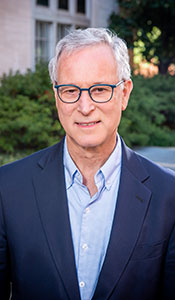I’d like to begin with month’s blog with a special word of recognition for our NF Program Genetics Counselor, Ashley Cannon, MS, PhD, CGC, who has been named a 2016 recipient of the prestigious Francis S. Collins Scholars Program Award. Ashley is the first individual in our program to have received this significant honor, which is designed to attract the highest level of talent to the field of NF1 by providing salary and research support to advance rigorous clinical translational research that will lead to improved treatment options for NF1. The award is named in honor of Dr. Francis S. Collins, who led one of the teams that discovered the NF1 gene in 1990 and currently serves as the Director of the National Institutes of Health (NIH). It is Dr. Collins’ hope that the Scholars Award will encourage others to combine a career in patient care and research, as he did. Because Ashely is trained in and serves both as a genetic counselor and a neuroscientist, her work embodies the clinician-scientist role that Dr. Collins envisioned for the program. As a Collins Scholar, Ashley’s work will focus on two primary areas. In the patient care arena, she will utilize her training as a genetic counselor and a neuroscientist in working closely with patients to better understand the specific problems and challenges they face related to NF and develop methods to address these problems. In the area of research, she will be working on a clinical trial for dermal neurofibromas with the goal of developing new treatments. Our entire NF clinic team joins me in congratulating Ashley for this outstanding achievement, which is very exciting for our program.
In another special recognition of a dedicated individual in our local NF community, Renie Moss, tireless patient advocate, was recently presented with the Volunteer of the Year Award by the Children’s Tumor Foundation (CTF) during the CTF Volunteer Leadership Council Meeting in Austin, TX. Renie was recognized for her inspirational leadership and dedication to patient advocacy and increasing NF awareness nationwide as well as her unique spirit of caring and compassion for NF families. The NF community is very fortunate to have someone with Renie’s many talents dedicated to the cause of patient advocacy and education.
Re-Cap of NF Forum
Last month, 10 people from our NF program attended the annual NF Forum held in Austin, TX, which marks the largest group from our team to attend this meeting. The NF Forum is the largest worldwide meeting dedicated to NF, bringing together patients and families as well as more than 300 NF clinicians and scientists from around the world to discuss advances in patient care, treatment, and research. The meeting provides an invaluable collaborative environment in which to exchange ideas and research findings with international clinicians and scientists working in the field of NF. Several members of our team gave poster presentations summarizing research conducted as part of our NF research program. The meeting left all of us energized with new ideas and goals for our program. One of the most interesting aspects of this year’s meeting was learning about new animal models that have been developed using pigs instead of mice. The pig model replicates the features of NF1 more closely than the mouse model, providing significant research advantages. We’re currently establishing a collaboration with one of the groups that developed the pig model and are hoping to incorporate these models into our research in the near future.
NF Genital Exam
In continuing our discussion of what to expect during an NF exam, I’d like to briefly review issues that could be detected during a genital exam. The most relevant potential problem we’re looking for is evidence of early or delayed puberty. As clinicians, we’re looking for changes such as the appearance of pubic hair and an early growth spurt as indicators of precocious (early) puberty. Sometimes, precocious puberty occurs for no known reason, but usually it is associated with optic nerve tumors (optic glioma) that involve the nearby hypothalamus that controls hormonal production in the brain. If signs of precocious puberty are found, we use MRI to check for the presence of an optic glioma and obtain hormonal studies. We also arrange for referral to a pediatric endocrinologist. Early puberty is difficult for children both emotionally and psychologically, and it causes them to be significantly taller than their peers at a very young age, but, because of premature closure of the growth plate, ultimate height attainment is shorter than normal. Precocious puberty can be successfully treated hormonally; if there is an optic glioma, sometimes that, too, requires treatment, though if there is no impairment of vision or evidence of progression, the optic pathway tumor may not require treatment. Aside from precocious puberty, signs of puberty can also occur later than normal. If delayed puberty is suspected based on a lack of physical indicators such as pubic hair and an adolescent growth spurt, we would also perform hormonal testing and refer to an endocrinologist.
In some people with NF, plexiform neurofibromas can affect the genital region, sometimes causing an overgrowth of the genitalia in males and females. Surgical treatment can be performed in these cases to help manage the problem. In women, plexiform neurofibromas can also sometimes impinge on the uterus and cause issues during pregnancy that might require surgical treatment, though sometimes these are too large to be amenable to surgical resection.
Director's Blog
NF Clinic Genetics Counselor Receives Esteemed Scholars Award, Re-Cap of NF Forum, and What to Expect During an NF Genital Exam
- Details
- Written by: Bruce Korf
